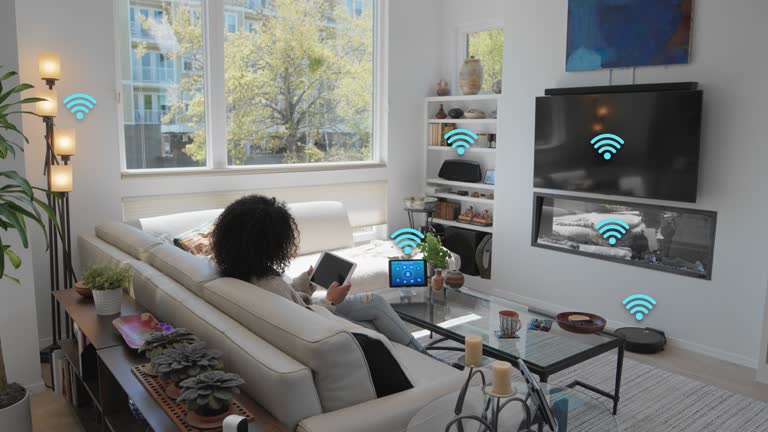
Case Studies of Energy-Efficient Smart Homes for a Greener Future
Share
In an era where technology continuously reshapes our lives, smart homes are at the forefront of this transformation. The integration of energy-efficient technologies into smart homes not only promises a more sustainable future but also provides unparalleled convenience and control to homeowners. This article delves into some standout case studies of energy-efficient smart homes, offering insights into their design, functionality, and impact on the environment.
The Rise of Smart Homes
The concept of smart homes has evolved significantly over the years. Initially, what began as a novelty for tech enthusiasts has now become a mainstream aspiration for homeowners worldwide. Smart homes leverage cutting-edge technology to automate a wide range of household functions, from lighting and climate control to security and entertainment. The focus, however, has shifted towards creating energy-efficient environments that minimize carbon footprints while maximizing comfort and savings.
Why Energy Efficiency Matters
Energy efficiency is crucial in the fight against climate change. By reducing energy consumption, smart homes contribute to a decrease in greenhouse gas emissions. This not only helps protect the environment but also leads to significant cost savings for homeowners. The integration of renewable energy sources, such as solar panels, further enhances the sustainability of these homes. For more on the role of AI in smart homes, check out this insightful article.
Case Study 1: The Solar-Powered Haven
One remarkable example of an energy-efficient smart home is the Solar-Powered Haven located in California. This home utilizes an extensive array of solar panels to generate electricity, significantly reducing its reliance on the grid. Advanced battery storage systems ensure that excess energy is stored for use during cloudy days or at night. The home features intelligent climate control systems that automatically adjust settings based on real-time weather data and occupancy patterns, optimizing both comfort and efficiency.
For homeowners interested in similar innovations, exploring success stories in green automation can provide valuable insights.
Case Study 2: The Urban Eco-Smart Apartment
In the heart of New York City, the Urban Eco-Smart Apartment sets a new standard for sustainable urban living. This smart home employs a combination of energy-efficient appliances, smart lighting systems, and water-saving technologies to reduce its environmental impact. The apartment's smart grid technology communicates with utility providers to optimize energy usage during peak and off-peak hours, resulting in lower energy bills and reduced strain on the city's power infrastructure.
For more ideas on sustainable home automation, visit this article on sustainable home automation examples.
Case Study 3: The Off-Grid Smart Cabin
For those seeking energy independence, the Off-Grid Smart Cabin offers a glimpse into a self-sustaining future. Nestled in the remote mountains of Colorado, this cabin is completely disconnected from traditional power sources. It relies on a combination of solar panels, wind turbines, and geothermal heating to meet its energy needs. Smart home technology is seamlessly integrated to manage these systems efficiently, ensuring that the cabin remains comfortable year-round.
For more innovative ideas on home automation, check out these home automation ideas.
The Future of Energy-Efficient Smart Homes
As technology continues to advance, the potential for energy-efficient smart homes is limitless. Innovations in artificial intelligence, machine learning, and the Internet of Things (IoT) will further enhance the capabilities of these homes, making them even more efficient and user-friendly. The integration of smart grids, energy management systems, and renewable energy sources will play a pivotal role in creating sustainable communities that benefit both individuals and the planet.
For those interested in learning more about the latest trends in green technology, consider exploring this comprehensive guide.

FAQ
What are the benefits of an energy-efficient smart home?
Energy-efficient smart homes offer numerous benefits, including reduced energy bills, lower environmental impact, and enhanced comfort and convenience through automation.
How do smart homes achieve energy efficiency?
Smart homes achieve energy efficiency through the use of advanced technologies such as smart grids, energy management systems, and renewable energy sources like solar panels and wind turbines.
Are energy-efficient smart homes expensive to maintain?
While the initial investment in energy-efficient technologies may be higher, the long-term savings on energy bills often offset these costs. Additionally, many governments offer incentives and rebates to encourage the adoption of such technologies.
